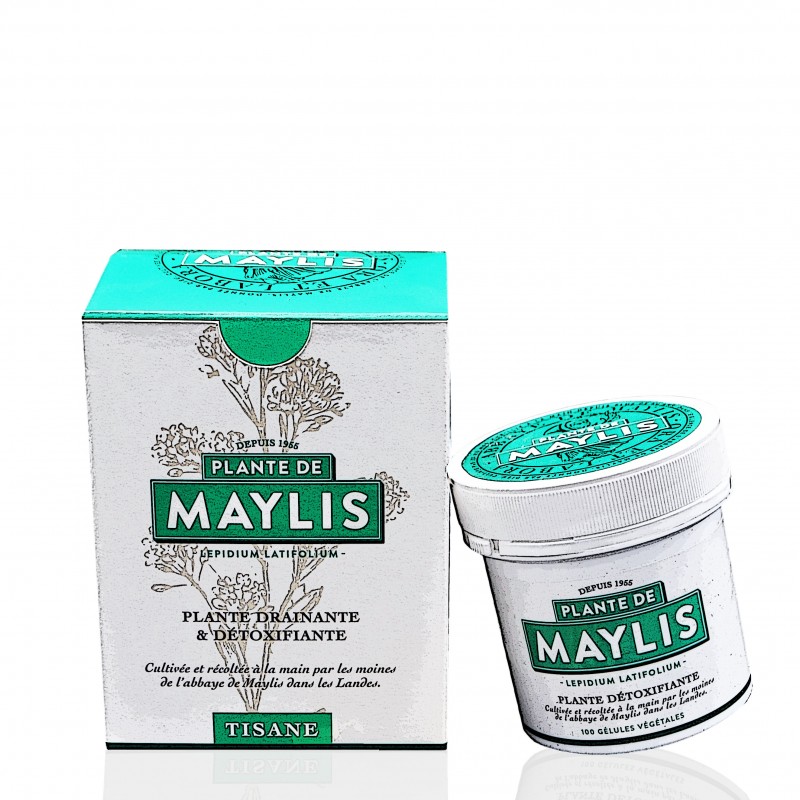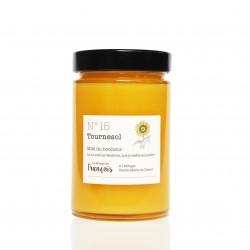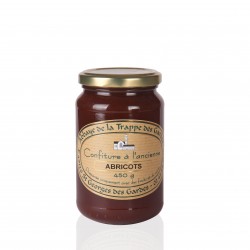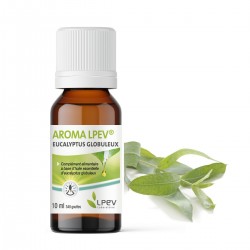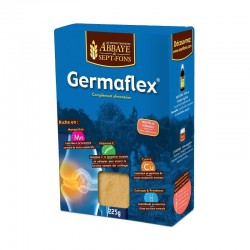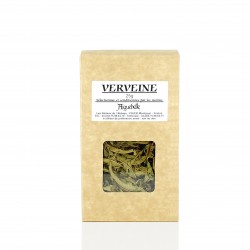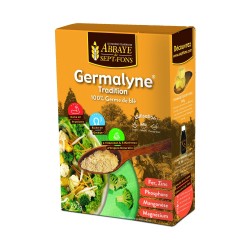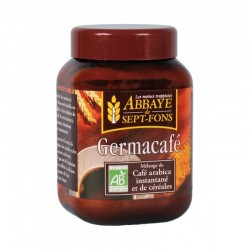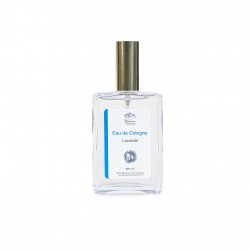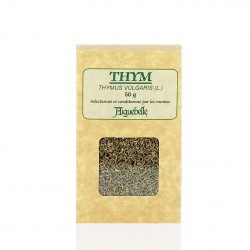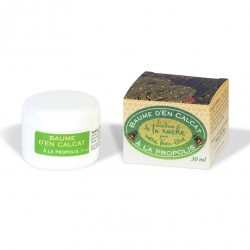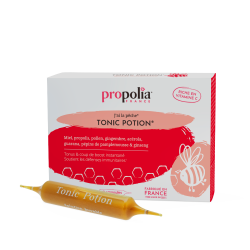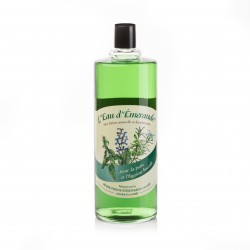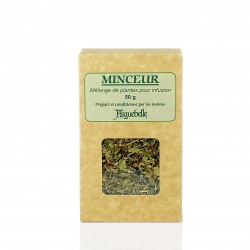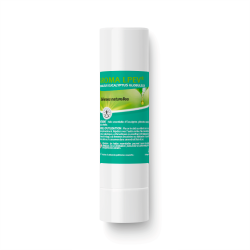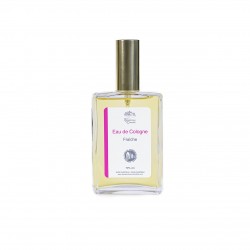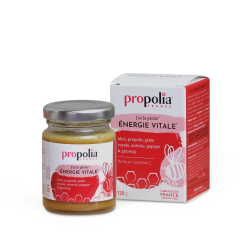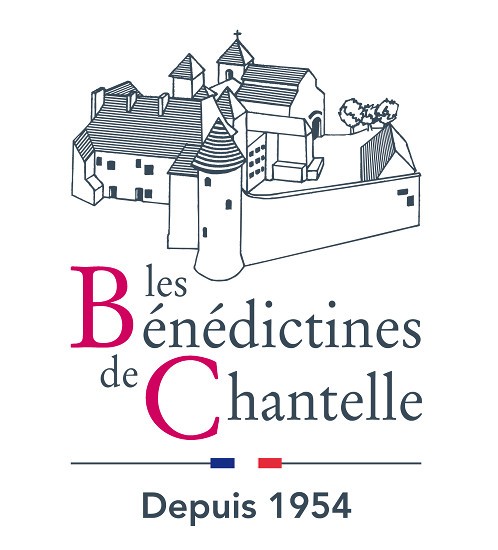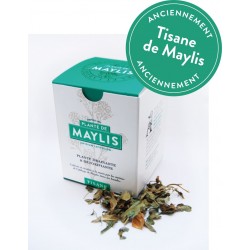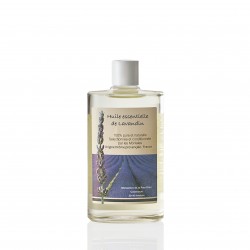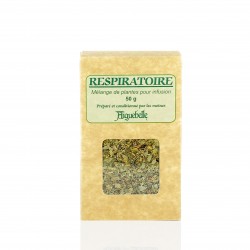Maylis capsules
Supplier: Notre-Dame de Maylis Abbey
Ingredients: Leaves and flowers of Lepidium Latifolium (Grande Passerage) - Vegetable capsules: hypromellose. intake per capsule: 230 mg For people with hypothyroidism or having a thyroid treatment, consult your doctor. Keep out of the reach of young children. Do not exceed the stated dose. A food supplement should not replace a varied and balanced diet and a healthy lifestyle.
Net Weight: 30.5g,
Capacity: 100 capsules
Directions for use: Directions for use: 1 capsule morning, noon, evening the first 3 days (690mg / day) - 2 capsules morning, noon, evening the following 15 days (1.38 g / day)
Made in France
It all started in 1952, when an old man knocked on the door of Notre-Dame de Maylis Abbey, in the Landes, to ask, under the amazed eye of Father Emmanuel, for permission to pick up a common plant and rather invasive from their garden. Before leaving, he confided to her: “In your enclosure, there is a fortune. From then on, the Benedictine community began to consider the perennial plant that invaded their field differently: Lepidium latifolium. A few years later, a friend came to Father Emmanuel, begging him to do something about the renal colic that was writhing him in pain. Father Emmanuel, who has died since, recounts the following in a video: “I said to myself:“ What if I tried this famous plant? ”I then prepared him a decoction, and, two days later, he was standing, his kidney unlocked. Since that day, I believe in two things: in God of course, and in the Maylis plant! This is how the story of this cruciferous tree, relegated to the rank of invasive, is reborn, when it had long been used for its medicinal properties. From 1959, the community of Maylis monks freed the plant from the brambles and thorns with which they had grown in their garden until now. They began to cultivate, harvest and then sell the “Maylis plant” for its detoxifying properties.
Draining
Perennial plant which grows in shaded places and at the edge of rivers, Lepidium latifolium, also called "great passage", was formerly cultivated also in vegetable gardens, to be used as a condiment. In England, this cousin of watercress was called "pepper herb" because of its spicy and bitter taste which also reminds that of horseradish. It was eaten like mustard or as a salad for young shoots. But it is mainly for its medicinal properties that it has been known since the Middle Ages. In the 9th century, Charlemagne did not forget to put Lepidium on the list of plants recommended in the gardens of the monasteries. In the 13th century, Hildegarde de Bingen wrote about it: "What it contains sour and bitter does not attack the man inside, but heals him. A man with a weak heart and a sick stomach will eat the raw Lepidium and strengthen it. Likewise, those who are sad will regain their joy. If eaten, it heals the eyes and makes them clear. "Although adorned with many virtues, it is mainly for its purifying properties that we use the passage. In Nicolas Alexandre's Botanical and Pharmaceutical Dictionary, published in the 17th century, he considers it to be "corrector of acidic matter" and suitable for "all diseases where acid dominates, either in the blood or elsewhere".
Priest
In the form of an eighteen-day draining cure, the monks of Maylis Abbey recommend consuming it at the change of season, to stimulate the renal, hepato-biliary and skin functions and to eliminate crystal and colloidal waste. You will prepare it in herbal tea, putting a tablespoon of Maylis plant in a good liter of water every morning, which you will drink all day. Since 2016, the Maylis monks have also offered the plant in the form of capsules to be taken each morning. "But beware," warns Brother Joseph, "don't forget to drink lots of water!" It is the first ally of our plant and an essential component of the cure! "In the Landes, the first consumers of herbal tea from Maylis are the monks themselves: as it promotes the elimination of uric acid," it's good to avoid stiffness when you work hard, "says Brother Joseph.
